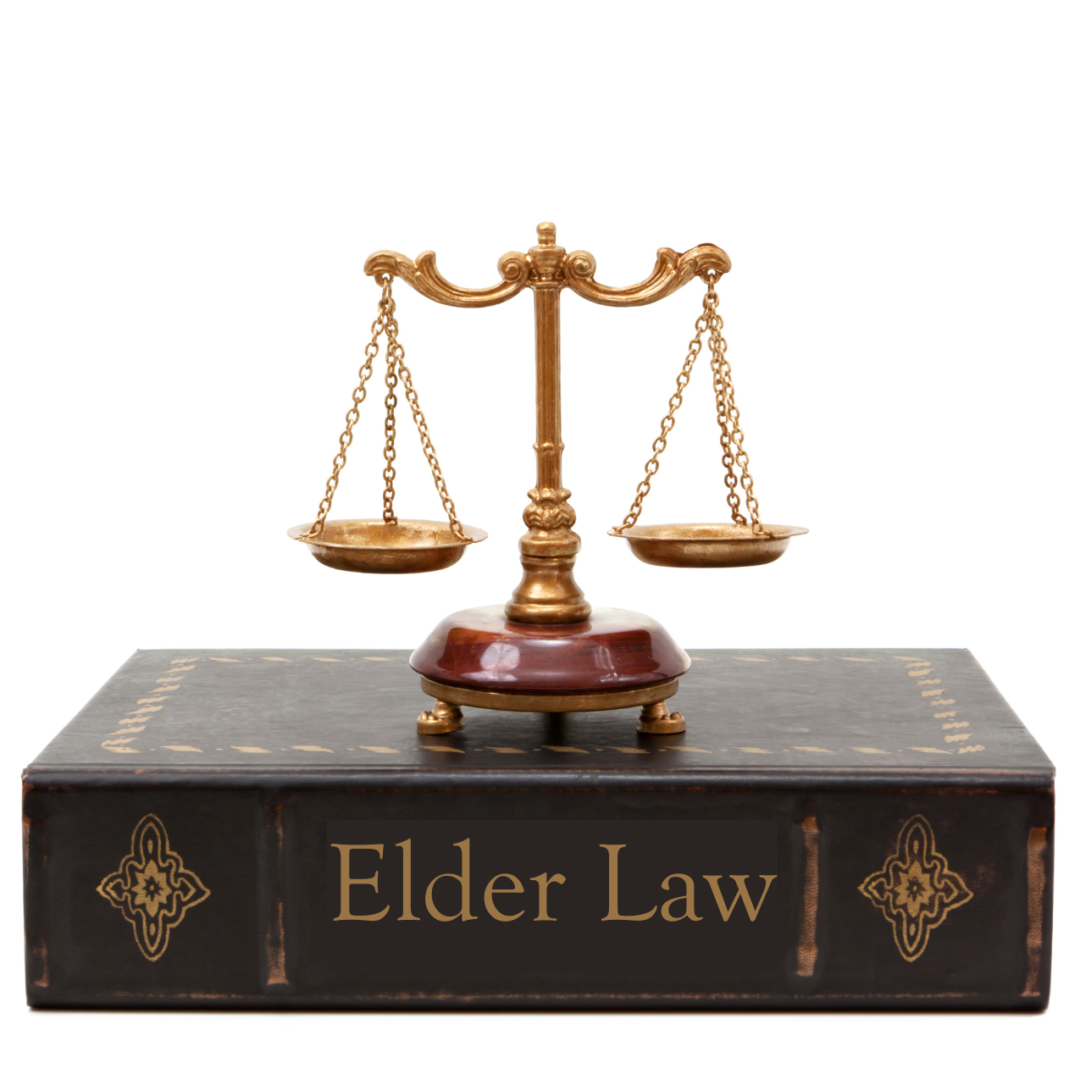We don’t know what we don’t know. Elder law attorneys do, and their expertise can be transformational for families facing aging-related challenges.
Whether you’re dealing with a recent diagnosis, planning for potential long-term care needs, or simply trying to prepare for the future, understanding how — and when — to work with an elder law attorney can make all the difference in your journey.
We’re exploring four essential tips for working with elder law attorneys, based on insights from Beth Prather, a board-certified elder law attorney with 32 years of experience, and Courtney Lovejoy, an elder law attorney with a Master of Laws in elder law. They are experts in Medicaid planning, VA benefits, estate planning, probate, trust administration, and guardianship. They are offering valuable guidance for anyone navigating the complex legal landscape of aging and caregiving.
Understanding Elder Law: More Than Just Estate Planning
Before diving into our tips, it’s important to understand what sets elder law attorneys apart from general estate planning attorneys. Beth Prather explains:
Most people understand what an estate planning attorney does when you’re healthy. They do wills, trusts, durable powers of attorney. Elder law attorneys do that too. Most people understand what a probate attorney or estate attorney does after death. Elder law attorneys do that as well. Our primary focus is in between being healthy and being deceased, where someone in the family unit is sick. That’s where we concentrate and specialize.
This specialized focus is crucial because aging-related legal issues can arise at any age. Early-onset Alzheimer’s can affect people in their 40s and 50s. A major stroke can happen at 35. A motorcycle accident can leave a 20-year-old needing specialized legal assistance. Elder law isn’t just for the elderly — it’s for anyone dealing with the legal implications of illness, disability, or long-term care needs.
Let’s explore the four essential tips for working with elder law attorneys.
Tip 1: How to Find an Attorney Who Specializes in Elder Law
Finding the right elder law attorney requires more than just a quick ‘Google’ search. Here’s how to identify professionals with genuine expertise in this specialized field:
Look for Specialized Credentials
Professional credentials are helpful indicators of specialized knowledge in elder law:
- Board Certification: In states like Florida, attorneys can become board-certified in elder law after practicing for a certain period, passing examinations, and receiving peer reviews. Beth explains: “Here in Florida, there are approximately 114 people who are board certified in elder law.”
- Master of Laws (LLM) in Elder Law: This represents one additional year of specialized education beyond a law degree. Courtney explains: “This is generally one year of extra schooling after your law degree where you specialize in a specific area such as estate planning, long-term care, or public benefits.”
- National Academy of Elder Law Attorneys (NAELA) Membership: In states without certification processes, membership in NAELA can indicate a focus on elder law.
Ask the Right Questions
While credentials are important, practical experience is equally crucial. When consulting with potential attorneys, ask specific questions about their practice:
- How many Medicaid applications did they file last year?
- What percentage of their practice focuses on elder law?
- Do they handle guardianships, Medicaid planning, or VA benefits cases regularly?
Beth cautions:
Even if you’re board certified or have an LLM in elder law, if you only filed one Medicaid application last year, the practical experience is not there.
Use Reliable Resources to Find Specialists
Several organizations maintain directories of elder law attorneys:
- NAELA.org: The National Academy of Elder Law Attorneys website has a searchable directory. Courtney explains: “They have a really good search function where you can type in your zip code and find elder law attorneys within a certain radius.”
- State-specific organizations: For example, Florida has the Academy of Florida Elder Law Attorneys (AFELA.org).
Personal referrals: Ask for recommendations from support groups related to your specific diagnosis, your current attorney in other area(s), financial planner, church community, or friends who have worked with elder law attorneys.
Tip 2: Prioritize Legal Documents and Planning Tools
Once you’ve found an elder law attorney, certain planning tools should take priority.
Comprehensive Durable Power of Attorney
- The single most important document for long-term care planning is a well-drafted durable power of attorney with specific provisions for Medicaid and VA planning.
Courtney explains:
When I say a good durable power of attorney, I mean one that has Medicaid planning language and VA planning language in it. You can have a power of attorney that works great at the bank or to sell real estate, but if it doesn’t have that good Medicaid and VA planning language, we’re in big trouble if there’s been a diagnosis and the person is no longer competent.
Some states, like Florida, have particularly strict requirements for these documents:
“It’s four and a half pages of our durable power attorney that’s just the Medicaid and VA benefits language we need.” Beth explains. “Other states don’t have that requirement… but what we do here in Florida may not work in Georgia or New York.”
Consider Long-Term Care Insurance
While not a legal document, long-term care insurance can be an important part of your overall planning:
“I’m a huge proponent of long-term care insurance if you can afford it and you’re well enough to get it,” Beth shares. “It gives you flexibility. I’ve had clients on both long-term care insurance and Medicaid at the same time to help keep their loved ones out of a nursing home.”
The key is getting coverage before a diagnosis makes you ineligible. Beth got her own policy at age 40 after seeing her father suffer a major stroke at a young age.
Limit or Avoid Gifting
If you have a diagnosis or anticipate needing Medicaid in the future, be careful about giving away assets.
Courtney advises:
If you have a diagnosis and you see Medicaid on the horizon, limit your gifting or, if you can, make no gifts at all. This is because of Medicaid’s five-year lookback period, where they examine whether you’ve given away assets to qualify for benefits.
“Even small gifts can complicate Medicaid eligibility. For example — buying your son a house — that’s a big gift. That’s obvious.” Courtney explains. “So is $100 to your grandson or $1,000 for a graduation present. If any gifting has been done within the last five years, it’s going to have to be reported to Medicaid.”
Avoid ‘Do It Yourself’ Planning
One of the most important priorities is avoiding do-it-yourself planning.
Beth warns:
It’s much harder for us to fix things than it is to come see us and plan correctly. We have clients coming to us from all over the United States, and they equate what happened in Missouri or California or Ohio. They have heard things they think they need to do before seeing the elder law attorney. It’s the opposite, you need to see the elder law attorney before doing any planning on your own.
Common ‘Do It Yourself’ mistakes include:
- Adding children to bank accounts or property titles.
- Giving away assets based on outdated or incorrect advice.
- Trying to ‘hide’ assets from Medicaid.
Courtney explains:
We show Medicaid everything we do. There’s no hiding. There’s no lying. We just make your assets and your income work within Medicaid’s rules.
Tip 3: Understand Medicaid and VA Benefits Options
A significant part of elder law involves helping clients navigate government benefits for long-term care.
Medicaid Myths and Realities
Many people misunderstand how Medicaid works for long-term care. Common myths include:
- Myth: You can only get Medicaid in a nursing home. Reality: In Florida and some other states, you can receive Medicaid benefits at home, in assisted living, or in a nursing home.
- Myth: You have to spend down all your money to qualify for Medicaid. Reality: In many states, especially Florida, there are planning options that don’t require spending down all assets.
- Myth: Medicaid recipients must go to ‘state’ nursing homes. Reality: Most nursing homes, including many upscale facilities, accept Medicaid.
- Myth: Medicaid is the same everywhere. Reality: While Medicaid has federal minimum requirements, states have different rules, benefits, and planning options.
Beth explains:
I know what Medicaid provides in Florida regardless of whether you live in Tallahassee or Fort Myers. The same is true with an elder law attorney in another state — they’re going to know what type of Medicaid benefits you can get.
VA Benefits for Long-Term Care
Veterans and their surviving spouses may qualify for additional benefits:
- Aid and Attendance: This VA benefit helps veterans and surviving spouses with long-term care needs. “A lot of our veterans think they had to have been injured in service to get benefits. That’s not what we’re talking about.” Beth clarifies. “We’re talking about VA Aid and Attendance, which is helping families, veterans, and surviving spouses of veterans with long-term care needs.”
- Medical Benefits: Some areas offer in-home care services through the VA medical system. “We have self-directed VA benefits where the VA will assist with paying for care in your home, different than Aid and Attendance. But you have to have been enrolled in the medical side of VA,” Beth notes.
An elder law attorney can help navigate these complex systems, determine eligibility, and develop strategies to qualify for benefits while protecting assets.
Tip 4: Use This Time to Address Other Important Legal Matters
Working with an elder law attorney provides an opportunity to review and update other important legal and financial arrangements.
Review Beneficiary Designations
Ensure your assets will go to your intended beneficiaries. Many people think “I have a will, so there’s not going to be a probate when I pass.”
Courtney explains:
That’s not true. A will only speaks to probate assets. If I want the food bank to get all of my money when I pass away, but I have my niece as beneficiary on all of my accounts, guess who’s getting all my money when I pass away? The niece, not the food bank.
Create an Asset Inventory
Develop a comprehensive list of what you own:
- Banking institutions and account types
- Account ownership (individual or joint)Beneficiary designations
- Approximate values.
This information helps your attorney properly advise you and makes things easier for your loved ones if you become ill or pass away.
Consider Account Consolidation
“Sometimes this is a good opportunity to consolidate accounts,” Courtney suggests. “There’s often no need to have eight different checking or savings accounts.”
Consolidation can simplify future Medicaid applications and make things easier for those managing your affairs.
Address Healthcare Decision Documents
Don’t forget about healthcare decision documents:
- Healthcare Surrogate (also called Durable Power of Attorney for Healthcare)” Designates who makes medical decisions if you can’t.
- Living Will: Documents your end-of-life care preferences.
Beth recalled the Terri Schiavo case in Florida: “She was 37 years old. Once again – she was not old. She did not have a living will, and we had decent people disagreeing about what her wish was (meaning her parents and her husband). It was litigated for 13 years in the courts.”
Be Cautious About Adding Others to Accounts or Deeds
Beth strongly cautions against adding children to accounts or property deeds without proper legal advice:
I see people adding kids’ names to houses, not just bank accounts. Bad things happen to good people. What if you add your kid’s name to an account or your house, and something bad happens to them? For example, they’re driving down the road, have an aneurysm, hit and kill people. Are you going to lose your assets because your child’s name is on it?
Discuss End-of-Life Preferences
Use this opportunity to discuss your wishes regarding:
- Burial or cremation preferences.
- Funeral or memorial service desires.
- End-of-life care preferences, such as whether you want hydration, nutrition, or just pain management.
Courtney advises:
Put these in writing with your estate planning or elder law attorney so there’s no question about it when you’re sick or dying or gone.
The Transformational Value of Elder Law Attorneys
Working with an elder law attorney can be truly transformational for families navigating aging-related challenges. Sue Ryan, one of their clients, shared:
We began our journey with you so early on. Even before our first meeting, you gave us homework. We had a lot of things you asked us to bring and do and be prepared to discuss when we came. One of the things so transformational for the rest of our journey was something you said: “Now is the time to look at everything. Look at other legal agreements you’ve got. How are your cars titled? How is your home titled? Who’s got signatures on documents? Look at everything now and make the choices.”
By addressing all these issues comprehensively, Sue Ryan was able to navigate each subsequent inflection point in their journey without the added stress of urgent legal decisions:
We put all of our affairs in place as we were working on the homework with you, so that with every single inflection point from that point in time that came along with the diagnosis, we didn’t have to make any legal decisions – they had already been completed.
Conclusion: Don’t Wait for a Crisis
The most important takeaway from the elder law experts is simple – Don’t wait for a crisis to seek specialized legal advice.
“If you have a diagnosis, you should have seen an elder law attorney yesterday.” Beth emphasizes.
Working with an elder law attorney proactively allows you to:
- Create proper legal documents while you’re still able to sign them.
- Develop strategies to protect assets and qualify for benefits.
- Address potential issues before they become emergencies.
- Provide peace of mind for yourself and your family.
By finding the right attorney, prioritizing essential planning tools, understanding benefit options, and addressing broader legal concerns, you can navigate the complex intersection of aging, illness, and the law with confidence.
We’re all on this journey together, and having the right legal guidance can make all the difference.
Frequently Asked Questions:
What’s the difference between an elder law attorney and an estate planning attorney?
- Elder law attorneys focus on the legal needs of people who are ill or disabled.
- Elder law attorneys handle Medicaid planning, VA benefits, guardianship, and other matters related to aging and disability, in addition to traditional estate planning.
- Estate planning attorneys typically work with healthy people planning for death.
When should I consult an elder law attorney?
- Ideally, before you need one.
- If you or a loved one receives a diagnosis of a chronic or degenerative condition, you should consult an elder law attorney as soon as possible.
- It’s never too early to get advice on planning for potential long-term care needs.
Can Medicaid pay for care in my home?
- It depends on your state.
- In Florida and some other states, Medicaid can pay for care at home, in assisted living facilities, or in nursing homes. Important note: the benefits and eligibility requirements vary significantly by state.
Do I need to spend down all my assets to qualify for Medicaid?
- Not necessarily. Many states, particularly Florida, have planning options that allow you to protect assets while still qualifying for Medicaid.
- This is one of the key areas where an elder law attorney can provide valuable assistance.
What should I look for in an elder law attorney?
- Look for:
– Specialized credentials like board certification or an LLM in elder law.
– Membership in elder law organizations.
– Significant practical experience with cases similar to yours. - Ask specific questions about their experience with Medicaid applications, VA benefits, and other relevant areas.
Can veterans get help with long-term care expenses?
- Yes, through programs like VA Aid and Attendance, which can provide monthly benefits to veterans and surviving spouses who need assistance with activities of daily living.
- Some veterans may also qualify for home care services through the VA medical system.
What legal documents should I prioritize for long-term care planning?
- A comprehensive durable power of attorney with specific Medicaid and VA planning provisions is absolutely essential.
- Healthcare decision documents like a healthcare surrogate designation and living will are also critical.
Should I add my child’s name to my bank accounts or house deed?
- Generally, no. This can create significant legal and financial risks, including exposure to your child’s creditors or legal problems.
- An elder law attorney can suggest better alternatives to achieve your goals.
Final Thoughts
There are legal experts who know the answers to questions we don’t even know to ask. For peace of mind, as well as legal protection, find an elder law attorney early in your journey — you’ll be glad you did!
If you have tips about working with Elder Law attorneys, please share them on our Facebook page or Instagram page.
We are all on this journey together.
Additional Resources Mentioned
- www.NAELA.org The National Academy of Elder Law Attorneys website has a searchable directory. “They have a really good search function where you can type in your zip code and find elder law attorneys within a certain radius,” Courtney notes.
- State-specific organizations: For example, Florida has the Academy of Florida Elder Law Attorneys (www.AFELA.org).
- Beth Prather: https://www.gskattorneys.com/attorneys/beth-a-prather/
- Courtney Lovejoy: https://www.gskattorneys.com/attorneys/courtney-van-emmerik-lovejoy/
- Support the nonprofit The Caregiver’s Journey: https://give.cornerstone.cc/thecaregiversjourney






Join the community